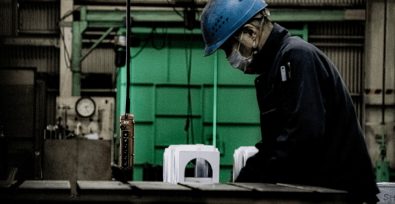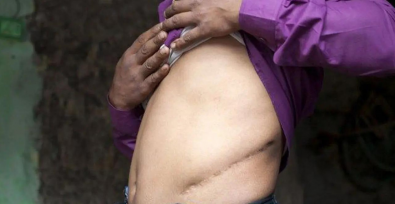Most Australian companies with a high risk of forced labor in their supply chains are failing to meet basic reporting obligations, according to an investigation led by the Human Rights Law Centre.
Human rights groups are calling on the Australian government to introduce tougher measures to hold firms accountable for their contribution to modern slavery at home and abroad.
Companies failing to disclose and address supply chain risks
Australian businesses with a consolidated revenue of $100 million or more have the obligation to release a statement annually presenting any potential forced labor risks in their supply chains. These statements should also outline the steps firms are taking to mitigate these risks.
The Human Rights Law Centre’s investigation reviewed disclosure statements from 102 Australian companies from across a range of sectors, including healthcare, clothing, seafood and horticulture.
ABC reports on the concerning results of the study:
“Over half of the companies that we reviewed failed to disclose obvious modern slavery risks in their high-risk supply chains,” Freya Dinshaw, a senior lawyer at the Human Rights Law Centre, said.
“We’re talking about clothing from China, rubber gloves from Malaysia, seafood from China, and fresh produce from here in Australia.”
Ms Dinshaw said less than a third of Australian companies surveyed appeared to be taking effective action to mitigate the risks.
How do these failures impact workers?
When companies fail to adequately review, disclose and address modern slavery risks in their supply chains, unscrupulous employers go unchecked. ABC spoke to two of the victims of exploitation involved in Australia’s supply chains.
Kate is a migrant who worked on a fruit farm in Australia. She worked 12-hour shifts for just $25 a day. “I was picking oranges and it’s a very hard job — very physical and [it] makes you very tired,” she told the ABC.
Kate’s boss sexually harassed her and withheld $500 of wages from her. She was too afraid to quit her job as her visa was linked to her employment.
But Australia’s links to forced labor are not limited by the country’s borders. Products sold in Australia are often manufactured abroad, meaning companies often contribute to exploitation around the globe.
Hassan makes medical gloves in a factory in Malaysia. During the pandemic, he was expected to work 14-hour days. He and his colleagues were threatened with deportation if they refused to work due to illness.
When some of his colleagues became unwell during the pandemic, they hid inside their rooms. “Our bosses come to our rooms. They catch us. They bring us to our workstations,” he said.
More must be done to hold firms accountable
Ms Dinshaw believes that more must be done to combat modern slavery in the supply chains of Australian businesses. ABC quotes:
“It is increasingly apparent that reporting alone is not going to be enough to drive fundamental change in supply chains,” Ms Dinshaw said.
“Many people would be surprised to learn that there are no real ramifications for businesses that fail to comply with modern slavery laws.”
In 2021, the Australian federal government pledged $4.4 million in funding for civil society over the next five years. The funding will help groups to investigate links between Australian companies and modern slavery.







Freedom United is interested in hearing from our community and welcomes relevant, informed comments, advice, and insights that advance the conversation around our campaigns and advocacy. We value inclusivity and respect within our community. To be approved, your comments should be civil.
Hello, John. You can find the original investigation here: https://static1.squarespace.com/static/580025f66b8f5b2dabbe4291/t/6200d3d9db51c63088d0e8e1/1644221419125/Paper+Promises_Australia+Modern+_Slavery+Act_7_FEB.pdf Thanks.
will freedom united expose these criminal companies that seek profits over blood, sweat and tears of the poor?